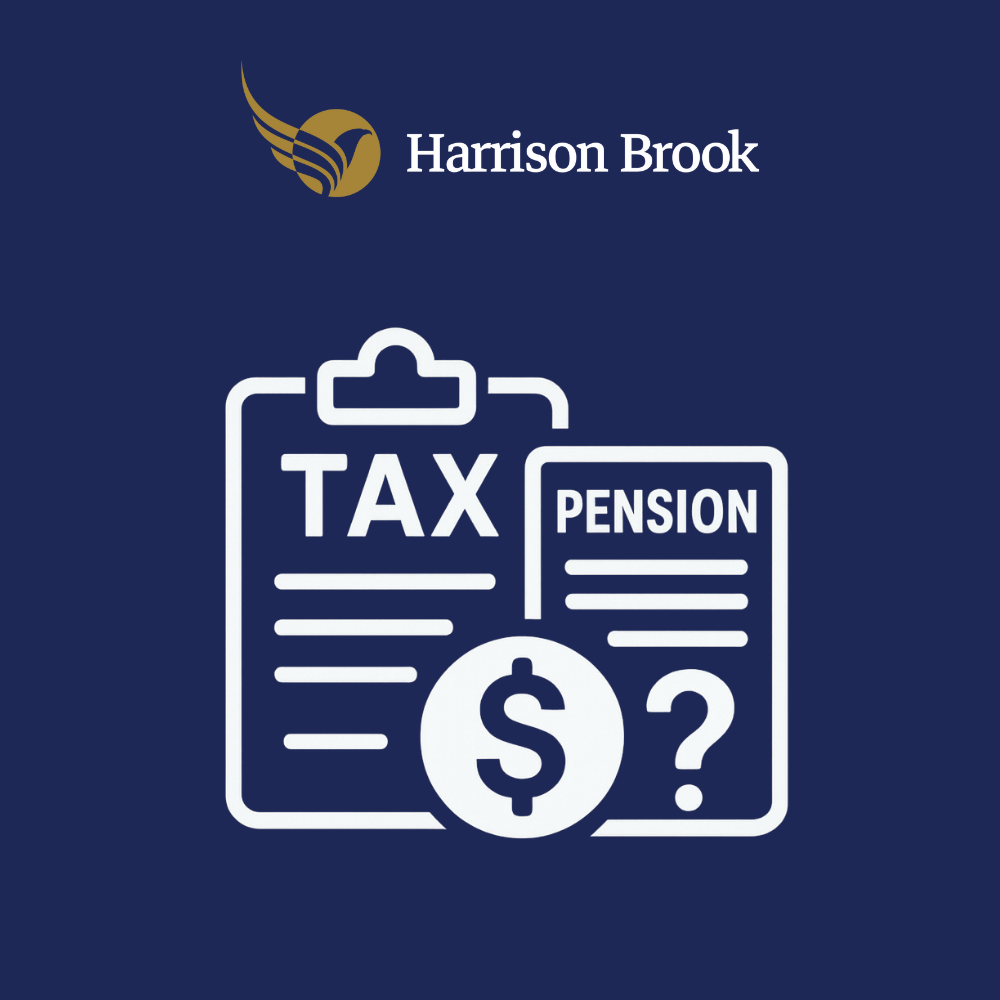
For many Americans who choose to retire in France, understanding how their US pension will be taxed is one of the first and most important financial questions. The good news is that the United States and France have a double taxation treaty, and a tax treaty signed between the two countries governs how pensions are taxed to ensure you do not pay tax twice on the same income. However, the way pensions are taxed depends on the type of pension, your residency status, and how income is declared.
In this guide, we break down everything you need to know about how US pensions are taxed in France, the treaty rules, and how to plan efficiently for your retirement abroad.
Understanding the US–France Tax Treaty
The US–France Income Tax Treaty determines which country has the right to tax specific types of income. Generally, if you are a French tax resident, your worldwide income is taxable in France and must be reported for tax purposes. That includes income from your US pension, 401(k), IRA, or Social Security.
The treaty, however, prevents double taxation. It allows you to claim a credit in one country for taxes paid in the other, or to have specific income taxed only in one jurisdiction.
The key takeaway is that France typically taxes your pension income if you live there full-time, while the US continues to require you to file an annual tax return. Fortunately, with the treaty and the Foreign Tax Credit, you can avoid paying twice.
Overview of the French Tax System
The French tax system is known for its complexity, with several layers of taxation that can impact US retirees. As a French tax resident, you are subject to income tax on your worldwide income, which means all your global income sources, including US pension income, Social Security, and other retirement benefits, must be reported on your annual French tax return. French residents are required to declare their global income, and the amount of tax you pay is determined by your total taxable income and the progressive French tax rate.
The tax treaty between the United States and France plays a crucial role in preventing double taxation. Thanks to this agreement, you can avoid being taxed twice on the same pension income. The treaty outlines which country has the primary right to tax specific types of income and provides mechanisms such as tax credits to offset taxes paid abroad. This is especially important for US expats, as it ensures that your US pension income and other retirement benefits are not unfairly taxed by both countries.
In addition to income tax, French residents may also be liable for social security contributions on certain types of pension income. Understanding your tax obligations as a French tax resident is essential for compliance and for optimizing your retirement finances in France.
Which US Pensions Are Taxed in France?
Not all pensions are treated the same. The taxation depends on the type of plan and its classification under French law. It is important to distinguish between a pension plan (a retirement savings arrangement, often employer-sponsored), a foreign pension (retirement income received from outside France), and a public pension (government-funded retirement benefits such as social security). American pensions may be subject to different tax rules in France depending on whether they are classified as a pension plan, foreign pension, or public pension. Additionally, the retirement age can affect when pension income becomes taxable in France.
1. Employer pensions (401(k) and traditional defined benefit plans)
Income from a 401(k) or an employer-sponsored pension is generally considered taxable income in France when withdrawn. The United States also taxes these pensions, but thanks to the treaty, you can often offset the French tax against your US liability.
2. Individual Retirement Accounts (IRAs)
Traditional IRAs are also taxable in France when distributions are made. Contributions are not deductible in France, so withdrawals are treated as fully taxable income.
Roth IRAs can be more complex. Eligibility for Roth IRA contributions is subject to income limits, which are higher for married couples. Although withdrawals may be tax-free in the US, France may not recognize the same treatment unless structured carefully. For that reason, it is vital to review your plan before retirement with an adviser who understands both US and French systems.
3. US Social Security
Under the tax treaty, Social Security benefits are only taxable in France, not in the United States, if you are a French resident. The Social Security Administration (SSA) facilitates payments to U.S. retirees living in France and provides information on government pensions and how they are treated under the tax treaty. France treats these payments as pension income, typically subject to income tax and social charges.
What Is the Tax Rate on US Pensions in France?
France uses a progressive income tax system. As of 2025, the rates range roughly from 0% to 45%, depending on income level and household composition. Pension income is subject to both income taxes and social contributions, typically around 7.4% to 9.1%, unless you hold a certificate of coverage or have private healthcare.
It’s important to note that France allows a 10% deduction on declared pension income before applying the tax rate, providing some relief for retirees.
For example:
- If your annual pension income is €40,000, only €36,000 is taxable after the 10% deduction.
- Then, French progressive rates apply, based on your total household income.
Avoiding Double Taxation
The double taxation treaty ensures that you are not taxed twice on the same pension income. There are two primary mechanisms for this protection:
- Tax Credit Method: If income is taxable in both countries, you can claim a foreign tax credit on your US return for French taxes paid.
- Exemption Method: Some income, such as US Social Security, may be taxable only in one country (France), and therefore excluded from US tax.
Pensions paid by a foreign government or for government service may be subject to special rules under the tax treaty, often found in the ‘Government Service’ article, which can allocate taxing rights differently.
Most retirees find that France becomes their main taxing country, while the US serves mainly for reporting purposes.
How to Declare a US Pension in France
Declaring your US pension in France requires including the income in your annual French tax return (form 2047 for foreign income). You should declare:
- Total gross pension paid during the year.
- Any US tax withheld.
- The relevant treaty article that applies.
It is advisable to maintain clear documentation of all transfers and withholdings. Working with a cross-border financial adviser and a bilingual tax specialist helps avoid reporting errors and ensures compliance in both jurisdictions. At Harrison Brook, we work with a network of professionals, including tax advisers and specialist lawyers, to provide comprehensive guidance.
Lump Sum Payments: Special Tax Considerations
Lump sum payments from US pension plans or retirement accounts can present unique tax challenges for Americans retiring in France. Under the French tax system, these lump sum distributions are generally taxed as ordinary income, meaning they are added to your total taxable income for the year and taxed at your applicable French tax rate. However, there are notable exceptions, certain lump sum payments, such as those from Roth IRAs, may be tax-free in France if specific conditions are met, such as the account being held for a minimum period and the payment qualifying as a retirement benefit.
France also recognizes foreign tax paid on lump sum payments, allowing you to claim a tax credit to reduce your overall French tax liability. This is particularly helpful in avoiding double taxation on retirement funds that have already been taxed in the US. Because the rules around lump sum taxation and tax credits can be complex and may vary depending on the type of pension or retirement account, it is highly recommended to consult with a tax professional who understands both US and French tax laws. This ensures that your lump sum payments are taxed correctly and that you take full advantage of any available tax relief.
Additional Considerations for US Retirees in France
Healthcare and social charges
Retirees who contribute to the French healthcare system are typically subject to social charges on pensions. The French system of health care is known for its universal access, with funding provided through a combination of employer and employee contributions, and the state.
Exchange rates
When converting US pension payments into euros, France requires you to use the official annual average exchange rate published by the tax authorities. This can affect the final tax calculation.
Estate planning
Pension taxation also has implications for estate planning. Some US retirement accounts can be treated differently under French inheritance tax rules, so it is essential to plan distributions and beneficiaries in advance.
Visa Requirements for US Retirees in France
For US retirees dreaming of spending their golden years in France, obtaining the right visa is a crucial first step. The French long stay visa is required for anyone planning to reside in France for more than 90 days, including retirees. The application process involves providing documentation such as a valid passport, proof of accommodation in France, and evidence of sufficient income to support yourself during your stay. Currently, the minimum income requirement for a single person is set at €17,116 per year, though this amount may be updated periodically.
In addition to financial proof, applicants must show they have comprehensive health insurance that covers them in France. The long stay visa is typically issued for one year and can be renewed annually, provided you continue to meet the requirements. After five years of continuous residence, you may be eligible to apply for a 10-year residency card, offering greater flexibility and security for your retirement in France.
It is advisable to check with the French embassy or consulate in the US for the most current information on visa requirements and to ensure your application is complete. Proper planning and documentation will help make your transition to life in France as smooth as possible.
FAQ: How US Pensions Are Taxed in France
Do American retirees pay taxes in France?
Yes. If you are tax resident in France, you must declare your worldwide income, including US pensions.
Does France have a double taxation agreement with the USA?
Yes. The treaty prevents double taxation and specifies which country taxes each income type.
Will France tax my US Social Security?
Yes, but the United States will not. The treaty assigns exclusive taxing rights to France for residents there.
How much tax will I pay on my pension in France?
It depends on your total income, marital status, and deductions. Expect between 0% and 45% plus potential social contributions.
How can I avoid paying tax twice?
Use the Foreign Tax Credit and report correctly under the US–France tax treaty. Professional advice ensures compliance and optimization.
How Harrison Brook Can Help
Navigating cross-border pension taxation is complex. Harrison Brook specialises in helping US nationals living in France manage their retirement income efficiently. Our advisers work alongside international tax specialists to ensure that your pensions are compliant, tax-efficient, and aligned with your long-term goals.
Whether you are already in France or planning the move, our team can help structure your IRA or 401(k), effectively and explore solutions such as International SIPPs or US-compliant investment portfolios.
Get Expert Advice on US Pensions in France
If you are unsure how your pension will be taxed or how to report it correctly, get in touch with Harrison Brook today.
Our cross-border financial advisers can help you understand your obligations, simplify your reporting, and optimize your retirement income in France.


